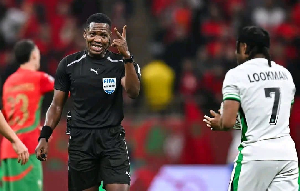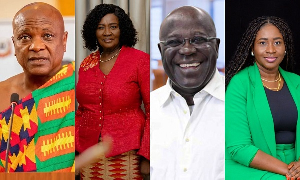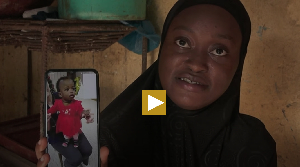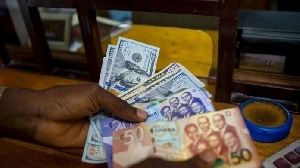History, according to US President Barack Obama, offers a clear verdict on the kind of government that is desirable: Governments that respect the will of their own people, that govern by consent and not coercion, are more prosperous, they are more stable and more successful than governments that do not. In other words, he was referring to the concept of “development in freedom.’
Addressing the Ghanaian Parliament Saturday, he urged African governments to adhere to the very principles that men like Danquah, Akufo-Addo, Busia, Adu Boahen and Kufuor prescribed for Ghana ““ that the universal rights of human beings are respected, and violations of those rights are opposed. That individual freedom should be protected and that access to opportunities for individual betterment must be vigorously promoted by the State.
The NPP philosophy which promotes human rights, the rule of law, free enterprise, individual liberty and prosperity, and good governance is the exact vision that President Obama urged Africans to embrace and apply.
His message is clear: “Where there is good governance, we can broaden prosperity through public-private partnerships that invest in better roads and electricity; capacity-building that trains people to grow a business; financial services that reach not just the cities but also the poor and rural areas.”
When President Kufuor was promoting the establishment of rural banks everywhere in Ghana, he was breathing life into Busia’s vision of rural development.
Obama spoke about an environment that allows entrepreneurship to flourish. Not one that criminalises success and make envy a model for the poor. Society and governance must be “about whether a young person with an education can get a job that supports a family; a farmer can transfer their goods to market; an entrepreneur with a good idea can start a business. It's about the dignity of work; it's about the opportunity that must exist for Africans in the 21st century,” so says Obama, reiterating the very intention that has been espoused by the Danquah-Busiasts even before Independence.
Indeed, it is the NPP’s political family, Danquah-Busia, that stood consistently steadfast against autocracy, human rights abuses and rule by men rather than rule by law. And, the US President acknowledged that when he observed: “Now, time and again, Ghanaians have chosen constitutional rule over autocracy and shown a democratic spirit that allows the energy of your people to break through. We see that in leaders who accept defeat graciously “” the fact that President Mills' opponents were standing beside him last night to greet me when I came off the plane spoke volumes about Ghana; victors who resist calls to wield power against the opposition in unfair ways.”
But, the last sentence in the Obama words above was a direct message to former President Jerry John Rawlings and people who think like him ““ who are consumed by vengeance and vindictiveness. President Obama is telling President John Mills to resist calls from the likes of Rawlings to bend the rules to deal ruthlessly with the NPP.
President Obama thinks same, “In the 21st century, capable, reliable and transparent institutions are the key to success “” strong parliaments; honest police forces; independent judges ... an independent press; a vibrant private sector; a civil society. Those are the things that give life to democracy, because that is what matters in people's everyday lives.”
To the coupists, the Obama message is clear: “History is on the side of these brave Africans [who fight on the side of freedom and justice], not with those who use coups or change constitutions to stay in power.”
The way forward for Ghana is clear: “No person wants to live in a society where the rule of law gives way to the rule of brutality and bribery. That is not democracy, that is tyranny...” says Obama.
When Obama says ,”Africa doesn't need strongmen, it needs strong institutions,” we can all guess to whom and what he refers. The NPP has long avoided building a personality cult around its living leaders. Like President Kufuor did and candidate Akufo-Addo spoke of in his vision to consolidate democracy, “democracy is built by strengthening institutions and not by the power of men.”
The 2008 manifesto of the NPP spoke about economic transformation from the Guggisberg cocoa-timber-gold focused economy to diversity. Obama urged Ghana to build “the capacity for transformational change” and allow oil to simply become the new cocoa.
Kufuor’s development programme focused on human resource development, good governance and infrastructural development. Obama says, “From South Korea to Singapore, history shows that countries thrive when they invest in their people and in their infrastructure ... when they promote multiple export industries, develop a skilled work force and create space for small and medium-sized businesses that create jobs.”
He notes that from cell phone entrepreneurs to small farmers, Africans have shown the capacity and commitment to create their own opportunities. But old habits must also be broken. With this referred to dependence on commodities “” or a single export. We will add dependence on the State and that culture of envy, where success is neither encouraged nor rewarded.
The more Ghanaians get exposed to the governing fraud of the NDC the more it becomes obvious that the NPP model is the only way forward.
General News of Monday, 13 July 2009
Source: Statesman












